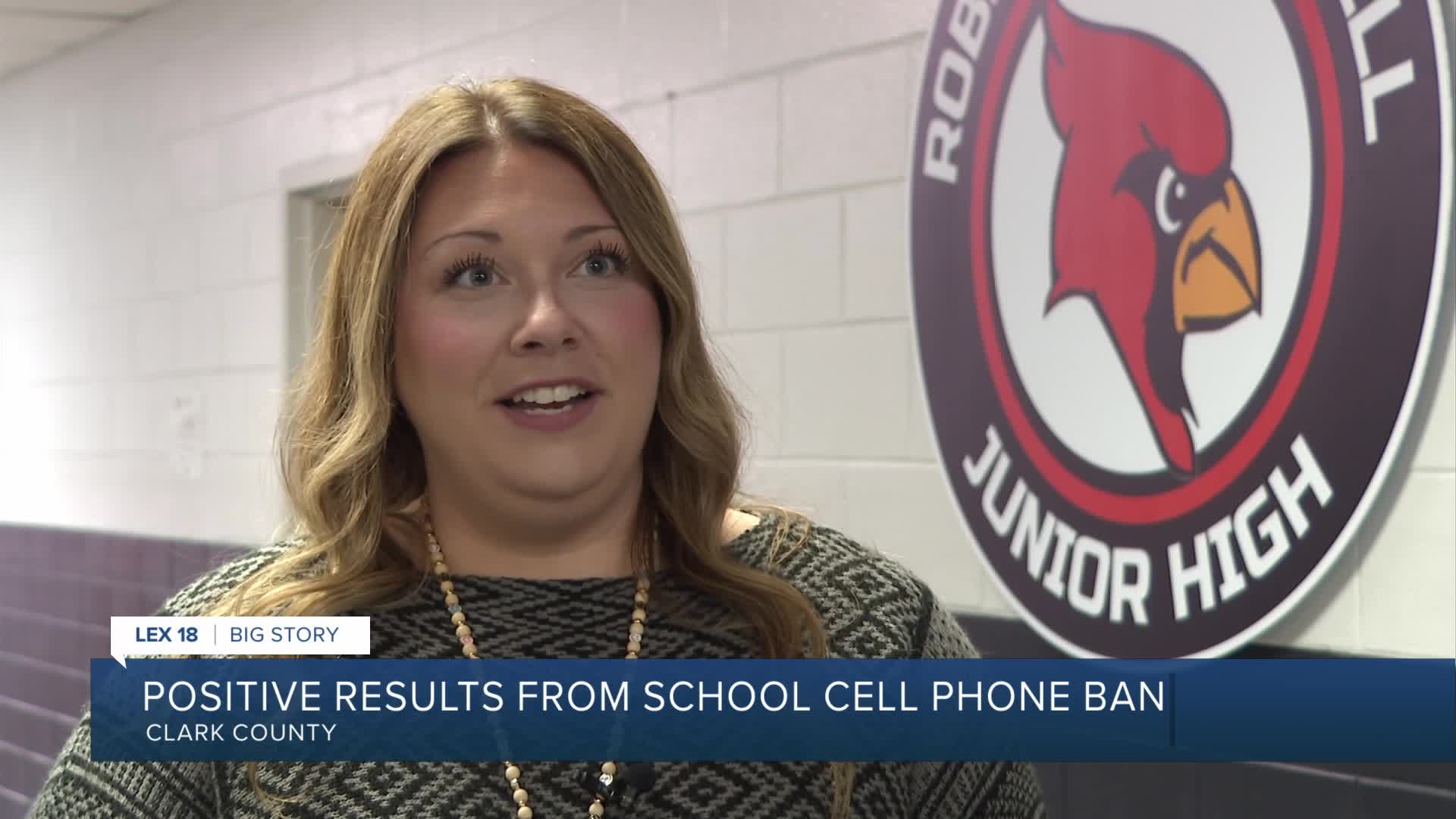CLARK COUNTY, Ky. (LEX 18) — Technology in the classroom is an ever-changing discussion. After a new state law went into effect this school year, phones are now out of the classroom altogether.
“(Students) know that when they come in the doors that we're in no cell phone zone,” said Tiffany Smith, principal at Robert D. Campbell Junior High School in Clark County. “They keep them up all day long. They know that's our expectation, and we have a really good student body who follows our expectations.”
Eighth-grade student Will Austin says the new policies haven’t been too contentious from a student perspective.
“It's not really us kids talking about the phone policy that much because we're kind of used to it now,” he said.
Cell phones are no longer allowed in the classroom after Kentucky lawmakers passed House Bill 208 in March. At Robert D. Campbell, however, students were already used to phone time being limited to the cafeteria and common areas. Teachers and administrators say this adjustment hasn’t been too difficult.
“I think I might have taken one cell phone this entire 9 weeks of school,” said Calvin Schmieg, band director and BARR coordinator. Both Schmieg and Smith credit the police, and the BARR (Building Assets, Reducing Risks) for a noticeable difference in the hallways.
“One of the biggest improvements we've seen is how our students are interacting with one another,” said Smith.
“I think they're understanding that, ‘hey this is actually good for me to get my eyes up and talk to the person in front of me,’” Schmieg added.
“People are more talkative,” Austin shared. “They're more friendly and stuff. They're not just all focused on their phone.”
Teachers and students alike have seen a relational impact of these new phone policies, but turning those things off and putting them away are also making a difference in the classroom.
“With a no cell phone policy combined with our BARR program we've seen tremendous decline in our failure rate here,” Smith said.
“What I have seen in this first nine weeks is that we as a school, so we're talking 7th and 8th grade, is down to 13%,” said Schmieg. “That's around 100 students out of 740 that we have failed one or one class or more for the first nine weeks and that's a significant drop.”
Just nine weeks into the school year is a small sample size, but these teachers hope it’s a sign of things to come.





